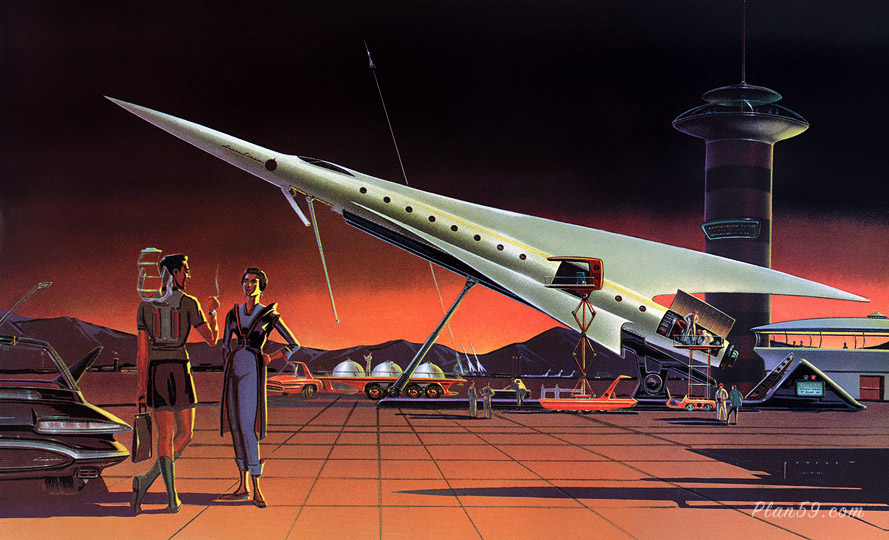 |
That was the 50's, a couple of generations or more past (though of course the 50's generate their own notion of the antique). But here's the future now, pre-aged:
 |
| Ian McQue, Shore Leave |
 |
| McQue, The Last Airborne |
A rusty, old future, in other words, rather than shiny and new -- and no rectilinear grid lines disappearing to a perspectivist vanishing point. But this clearly has an appeal all its own -- note the enduring interest in Blade Runner. It's related, at least, to the appeal of punk, and to its cyber- and steam- variations. Related also to the appeal of ruins as such -- the sense of great depths, possibilities, mysteries, beneath the broken surfaces, the sense even of time itself made a visible, tangible presence -- but in this case still with that imagination-teasing added dimension of the future.
There's no escaping the appeal of decadence as well, however, and the indulgent sentimentalism that carries with it. Note how that fits so well with the theme of Conspiracy, both benign and malignant -- the sense of vast, inherently incomprehensible social totalities, with a few outsiders fitting into its interstices, both preying and preyed upon (in contrast to the rectilinear, Utopian future of the 50's). Gibson, of course, but Pynchon too. And caverns measureless to man....
.
No comments:
Post a Comment